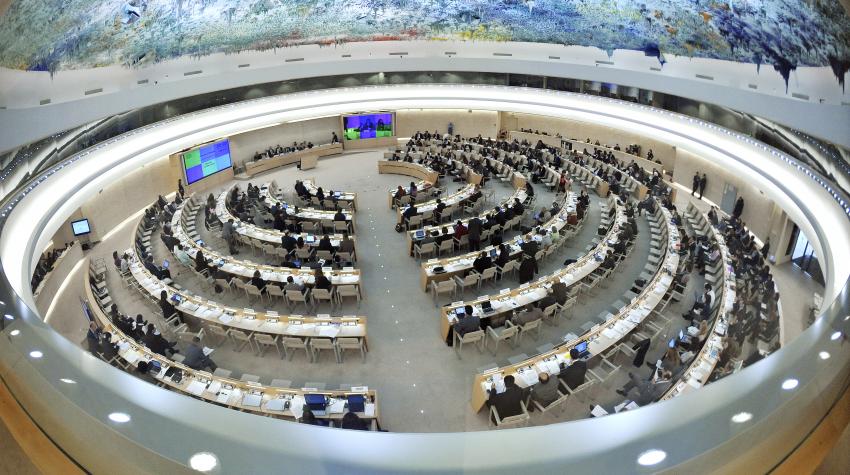The United Nations Human Rights Council has strongly condemned the Taliban’s public execution of a man in Paktia province, labeling it “cruel, inhumane, and arbitrary,” and calling for an immediate halt to such practices.
The execution, carried out in a sports stadium in Gardez in eastern Afghanistan, saw the accused shot three times by a relative of the victim. The event was attended by Taliban officials, including the acting interior minister, and local residents.
This marks the sixth such public execution since the Taliban’s return to power in 2021, according to the U.N.
“Public executions constitute cruel, inhuman, or degrading treatment or punishment,” the council said in a statement. “They are inherently arbitrary and violate the right to life protected under the International Covenant on Civil and Political Rights, to which Afghanistan is a party.”
The U.N. reiterated its opposition to the death penalty under all circumstances. “This punishment is incompatible with the fundamental right to life and carries an unacceptable risk of wrongful executions,” the council noted. “Evidence also shows it has little to no impact on deterring crime. We urge Afghanistan’s de facto authorities to impose an immediate moratorium on executions and move swiftly to abolish the death penalty altogether.”
The U.N. High Commissioner for Human Rights, Volker Türk, expressed further concern over the Taliban’s use of corporal punishment in public. Last week, a woman and a man accused of “running away from home” were publicly flogged at a high school in Parwan province. In Jawzjan, four women and 18 men were lashed in a sports stadium for offenses including adultery, alcohol consumption, and drug-related crimes.
“Corporal punishment is a clear violation of the prohibition against torture and other inhuman or degrading treatment under international human rights law,” Türk said.
The Taliban claim that public punishments, including executions, are carried out under Islamic Sharia law. According to the Taliban-run Supreme Court, the man executed in Gardez, identified as Mohammad Ayaz Asad, was convicted of killing a man named Habibullah.
Rising numbers of harsh sentences
Taliban have escalated the use of public punishments since their takeover of Afghanistan. According to the Taliban Supreme Court, in the past three years:
176 individuals have been sentenced to qisas (retributive justice), including stoning and execution.
Over 400 people are currently awaiting execution in Taliban prisons.
These figures underscore the growing trend of public and severe punishments under the Taliban, raising alarm among human rights organizations globally.





